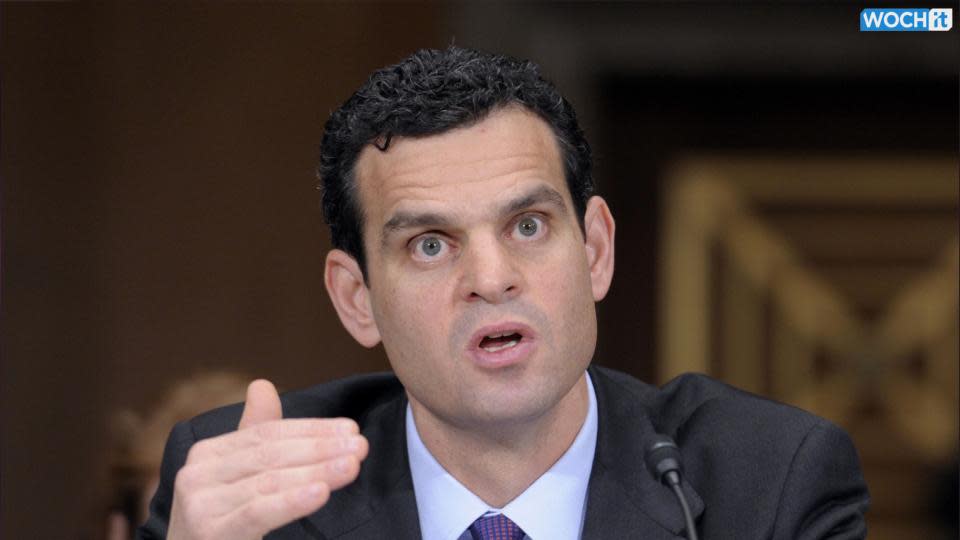Smuggled oil, sex slaves, kidnappings, crime: Inside the Islamic State’s million-dollar money stream
The extremist group’s preferred currency? The U.S. dollar, of course

The United States has ramped up a campaign to squeeze the Islamic State’s astounding ability to get cash, a highly sophisticated moneymaking machine that has generated tens of millions of dollars since mid-June and made the group one of the world’s richest extremist forces, officials said on Thursday.
ISIL, as it is also known, has amassed a fortune through the sale of smuggled Iraqi oil, kidnappings for ransom, and extortion and crime in areas it controls. And unlike al-Qaida, external donations account for a relatively small amount of its cash flow.
“With the important exception of some state-sponsored terrorist organizations, ISIL is probably the best-funded terrorist organization we have confronted,” Treasury Undersecretary for Terrorism and Financial Intelligence David Cohen said on Thursday in a speech to a Washington,D.C., think tank. At a subsequent briefing at the White House, Cohen declined to provide an estimate of the group’s net worth today.
From mid-June until President Barack Obama unleashed airstrikes in Iraq and Syria against it, the Islamist organization scored $1 million per day from smuggled oil, Cohen said at the Carnegie Endowment for International Peace. He declined to say how much the airstrikes, which began on Sept. 23, have sliced into the group’s oil revenue.
The oil operation, which has drawn the most scrutiny, relies on long-standing smuggling networks operating in oil-rich parts of Iraq now under IS control. IS extracts the petroleum and sells it to smugglers, some of whom use “relatively sizeable tankers” to get it onto the black market.
At the official world market price of about $100 per barrel, IS at its peak would have been generating approximately 10,000 barrels. But Cohen said IS was selling “at substantially discounted prices,” the quantity was likely much greater.
Cohen said IS sold oil to middlemen, including some from Turkey. It also sold to Kurds in Iraq, who resold it to Turkey. Even Syrian strongman Bashar Assad, whom IS aims to overthrow, arranged to buy oil from the group, he said.
But that highly sophisticated arrangement has weaknesses, Cohen said.
“At some point, that oil is acquired by someone who operates in the legitimate economy and who makes use of the financial system. He has a bank account. His business may be financed, his trucks may be insured, his facilities may be licensed,” Cohen said. “All that makes ISIL oil facilitators vulnerable.”
IS has also made a fortune from kidnappings for ransom: an estimated $20 million in 2014.
Official U.S. policy forbids paying ransom on the assumption that doing so encourages future abductions. But other countries, including France, have historically not had the same reluctance. Obama sees the problem as serious enough that he has appealed to other world leaders to bring their policies in line with Washington’s.
“The president has, on a number of occasions, made the case to other world leaders about the benefits of the position that’s taken by the United States,” White House press secretary Josh Earnest told reporters on Thursday. “As painful as that policy decision is, it is clearly in the best interests of the global community.”
IS’s third-largest source of revenue has been extortion, plunder and crime in the vast stretch of territory it controls in Syria and Iraq, according to Cohen, who placed the revenue at “several million dollars per month.”
IS fighters demand money from business owners and travelers, sometimes reportedly “going home to home, business to business, demanding cash at gunpoint,” he said.
“Make no mistake: This is not taxation in return for services or even for real protection,” Cohen said. “The money ISIL pilfers is being exchanged not for a guarantee of safety but for the temporary absence of harm.”
IS has also robbed banks, looted antiquities, and sold women and girls as sex slaves, he charged.
U.S. officials say the same thing that makes the group vulnerable to airstrikes also stresses its considerable revenues: the desire to act like the government of a state.
Unlike terrorist groups that operate in extremely remote areas, plotting in the shadows, mindful that a U.S. drone might be nearby, IS has bases, headquarters and camps in Syria and Iraq that make for inviting targets of U.S. missiles and bombs.
It also aims to win over the hearts and minds of the local populace by providing services like water or electricity, and “that is expensive,” Cohen said.
Planned Iraqi government spending this year for the areas now under IS control “was well over $2 billion,” he noted.
“I don’t mean to suggest that ISIL is intending to deliver anything like the services the Iraqi government was intending to deliver, but that gives you an idea of sort of the scale of the expenses,” he said.
So what is the Islamic State’s preferred currency as it amasses and spends wealth?
“The preferred currency of ISIL, like the preferred currency of everyone around the world, is the U.S. dollar,” said Cohen. “I think mostly what they have access to are Iraqi dinars.”




